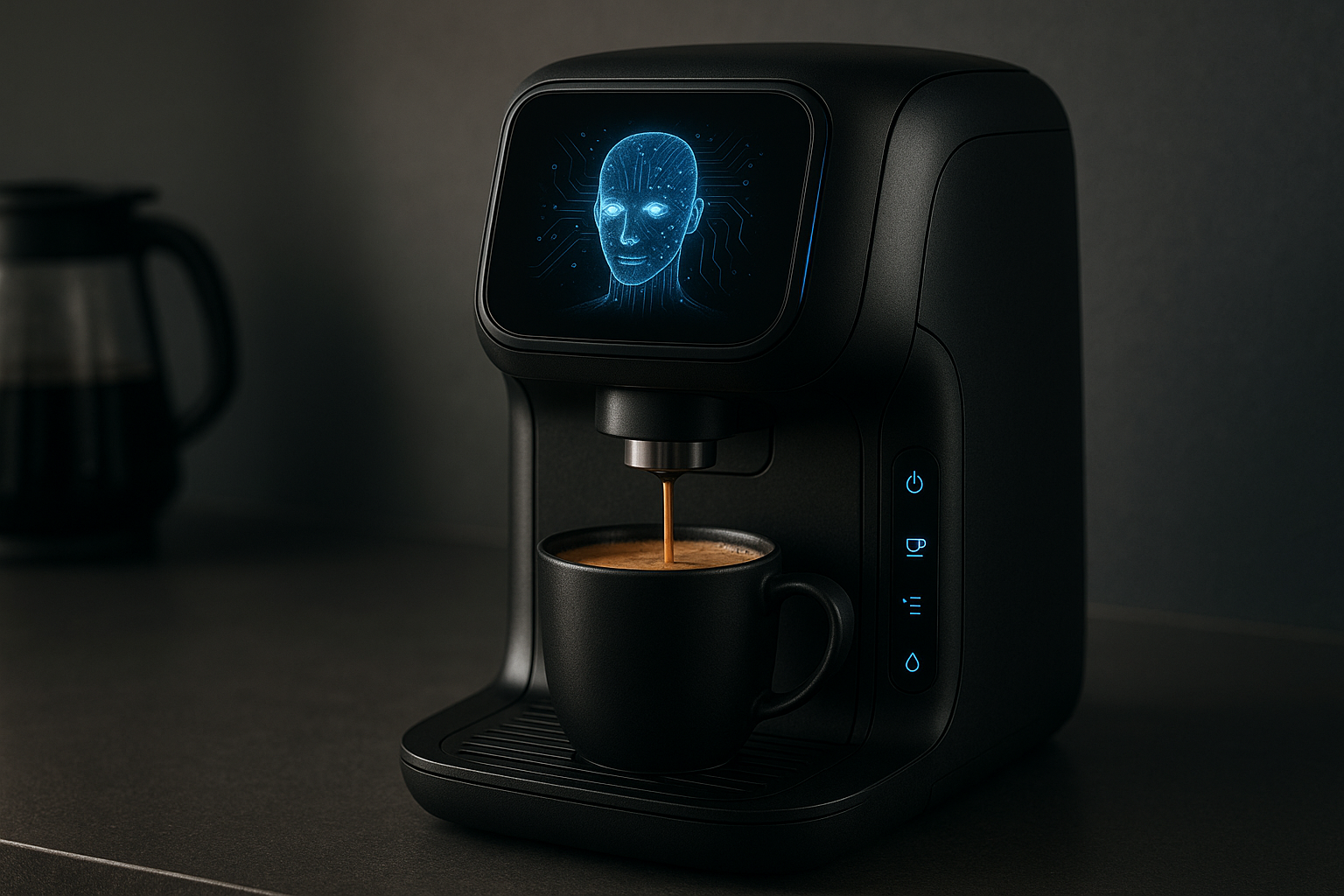Sustainability is no longer a trend in the coffee industry — it’s a necessity.
As climate change intensifies and consumer awareness grows, cafés around the world are under pressure to reduce their environmental footprint. Fortunately, technology is stepping in to help.
From energy-efficient espresso machines to zero-waste brewing methods and digital platforms that minimize waste, eco-friendly coffee tech is revolutionizing how cafés operate.
In this article, we’ll explore the most impactful innovations driving sustainability in modern coffee culture — and how your café can benefit from embracing them.
The Urgency of Sustainability in Coffee
Coffee is one of the most consumed beverages worldwide, but it’s also one of the most resource-intensive. From farming practices and water usage to transportation and disposable packaging, each step in the coffee supply chain leaves an environmental mark.
According to the Specialty Coffee Association, a single cup of coffee can use up to 140 liters of water when considering cultivation, processing, and brewing.
The carbon footprint of coffee is also significant, especially when sourcing beans from distant countries.
Modern cafés have a responsibility — and an opportunity — to adopt sustainable practices. And technology is making that transition not only possible but profitable.
Energy-Efficient Espresso Machines
One of the biggest energy consumers in a coffee shop is the espresso machine. Traditional models keep water at high temperatures constantly, consuming electricity throughout the day — even during slow hours.
New-generation machines now use smart heating systems, which adapt to usage patterns and reduce standby energy waste.
Some models come with insulated boilers, energy-saving modes, and real-time consumption monitoring. These features help cafés lower electricity bills and carbon emissions without sacrificing performance.
Brands like La Marzocco and Victoria Arduino are leading the way with machines that meet rigorous energy efficiency standards. For baristas, this means brewing high-quality coffee with a lighter environmental impact.
Low-Waste and Zero-Waste Brewing Methods
Waste reduction is a key goal for eco-conscious coffee operations. Traditional drip brewing methods often lead to excess brewed coffee being discarded throughout the day.
In contrast, single-cup brewing systems — such as pour-over, AeroPress, or precision automated brewers — ensure that only the required amount is made.
Some cafés have adopted machines with real-time consumption data. These systems monitor peak times and adjust brewing volumes accordingly.
This reduces both coffee waste and the need for overproduction, especially in high-volume locations.
Compostable filter options and reusable metal filters are also gaining popularity, helping reduce single-use paper waste.
Sustainable Roasting Technology
The roasting process is energy-intensive and often releases carbon dioxide and other pollutants. Modern eco-roasters now use electric or hybrid heating systems that lower emissions and offer better energy control.
Some advanced roasters include catalytic converters or afterburners that capture and neutralize harmful emissions. These innovations not only benefit the environment but also improve workplace air quality for roasters.
In addition, AI-powered roasting systems allow precise control over temperature and time, reducing the risk of wasted batches and energy inefficiencies.
Water Conservation Technologies
Espresso machines, grinders, and dishwashers require large volumes of water. Modern cafés are adopting systems that recycle water or reduce waste through intelligent design.
New espresso machines now include low-flush group heads and dual boiler systems that reduce rinse cycles. Some setups reuse cooling water or redirect it for other uses, such as cleaning or plant irrigation.
Water filtration systems are also essential. They improve coffee flavor, protect machines, and reduce the frequency of maintenance, which in turn lowers water waste from repairs and flushing.
Digital Inventory and Waste Tracking Tools
Eco-friendly cafés are increasingly turning to digital platforms to monitor their operations. Apps and cloud-based systems help track inventory, forecast demand, and prevent over-ordering — a common source of waste.
Waste tracking software allows cafés to analyze what is being thrown away and why. This data can highlight areas where improvements are needed, such as portion control, over-brewing, or inefficient ingredient use.
Digital checklists and inventory sensors keep kitchen and bar operations more accountable, reducing both food and packaging waste in the long run.
Sustainable Coffee Sourcing Platforms
Technology also supports sustainability at the sourcing level. Platforms like Cropster and Enveritas connect roasters and cafés with ethical producers, ensuring transparency in sourcing and reducing the risk of greenwashing.
These systems often integrate with blockchain, enabling traceability from farm to cup. Consumers can scan QR codes to learn where their beans were grown, how the farmers were compensated, and what sustainability practices were used.
This transparency builds trust and loyalty, especially among younger consumers who prioritize ethical consumption.
Eco-Friendly Packaging Solutions
Packaging waste, especially from takeaway cups and coffee bags, is a significant challenge. Fortunately, several innovations are tackling this issue head-on.
Biodegradable and compostable cups made from PLA (plant-based plastic) or bagasse (sugarcane fiber) are increasingly available. Some cafés partner with local recycling programs to ensure proper disposal and processing.
Vacuum-sealed, resealable coffee bags made from recyclable or compostable materials help reduce oxygen exposure and waste. For wholesale operations, reusable containers and bulk dispensers offer a more sustainable model.
Carbon-Neutral Delivery and Logistics
Delivery services are another major contributor to a café’s carbon footprint. Eco-conscious cafés are investing in electric bikes, EVs (electric vehicles), and logistics platforms that optimize routes for fuel efficiency.
Some third-party apps now offer carbon offsets as part of their checkout process. Others connect cafés with local delivery drivers who use sustainable transportation methods.
By analyzing data on delivery times, locations, and customer preferences, cafés can streamline operations while reducing environmental impact.
Composting and Circular Waste Systems
Composting is one of the most impactful yet underused sustainability practices in cafés. Used coffee grounds, filters, and food waste can be turned into nutrient-rich compost instead of ending up in landfills.
Some cafés go a step further by partnering with local farms or community gardens to create a circular system — coffee waste feeds the soil that grows future produce.
In some cities, startups offer smart compost bins that track weight, frequency, and type of waste collected. This data can be used to optimize waste management and provide sustainability metrics for marketing.
In-Store Green Tech Features
Beyond brewing equipment, cafés are incorporating sustainability through smart lighting, energy-efficient HVAC systems, and renewable energy sources like solar panels.
Motion-sensor lights, low-energy LED bulbs, and automatic timers help reduce unnecessary electricity usage. Smart thermostats adapt to foot traffic and outdoor temperature, maintaining comfort while saving energy.
Solar-powered coffee carts and pop-up cafés are also gaining traction, offering mobility with minimal environmental impact.
Educating Staff and Customers
Technology also plays a role in education. Tablets, QR codes, and digital displays can be used to share sustainability practices with customers. This encourages them to support green initiatives like bringing reusable cups or opting out of disposable lids.
Staff training platforms include eco-modules that teach sustainable practices, waste sorting, and efficient equipment use. This knowledge translates into daily habits that make a big difference over time.
Gamifying sustainability goals — such as rewarding staff for reducing waste or conserving energy — can build a strong culture around eco-consciousness.
Why It’s Worth the Investment
Adopting eco-friendly coffee tech is not just a moral choice — it’s a smart business strategy. Customers increasingly prefer brands that align with their values. A sustainable café can attract new patrons, increase brand loyalty, and command premium pricing.
Many governments and municipalities also offer tax incentives, grants, or certifications for businesses that meet environmental standards. This makes the initial investment in green technology more accessible and worthwhile.
Moreover, sustainable practices often lead to lower operational costs in the long term. Energy savings, reduced waste, and streamlined processes all contribute to a healthier bottom line.
The Future of Sustainable Coffee
As technology continues to evolve, so will its applications in the coffee world.
We can expect even more advanced AI systems that optimize entire café operations, biodegradable smart packaging, and carbon tracking dashboards integrated into POS systems.
Cafés that embrace these innovations early will not only protect the planet but also future-proof their business. In the years to come, sustainability won’t be a bonus — it will be the baseline.

Artur is a coffee enthusiast and content creator passionate about barista techniques and coffee culture. With a sharp eye for detail and a love for learning, he shares practical tips, brewing guides, and gear insights to help readers elevate their coffee experience — from home brewers to aspiring professionals.
